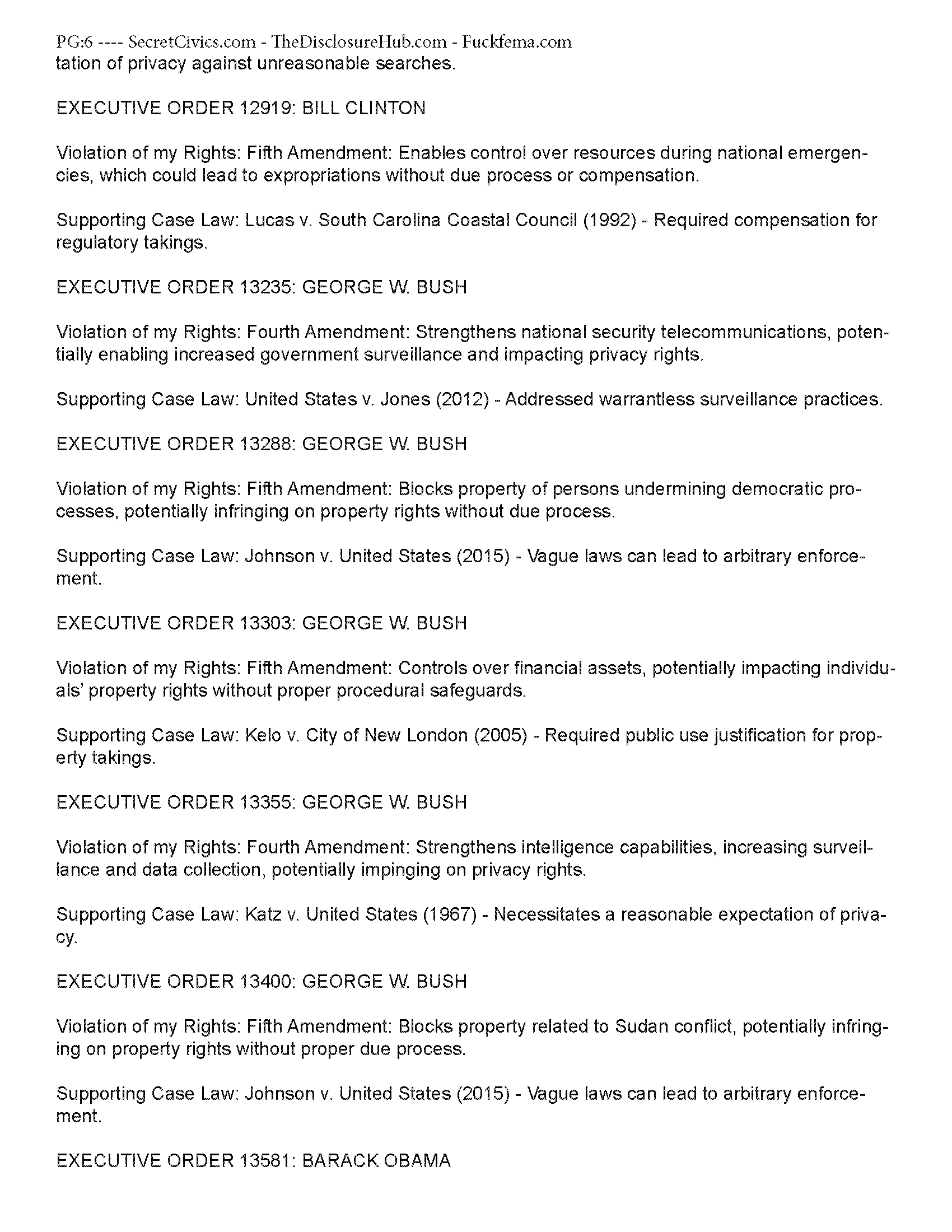Please Be Patient !
The videos and images on this page are HD and take some time to load.
Feeling overwhelmed by the idea of combating mass arrest Executive Orders (EOs) and Acts?
Don’t be.
Filing lawsuits may sound intimidating, but in actuality, they can be the most straightforward and effective way to assert your rights and challenge unconstitutional legislation. When you file one, your whole word will change and you'll begin to develop one of the most powerful abilities one can have in this life time. You yourself can change the world without anyone's help.
Why Act Now: Mass arrests threaten fundamental freedoms like due process and protection against unreasonable searches and seizures. If left unchallenged, these measures can pave the way for increased governmental overreach and abuse, potentially infringing on your personal liberties and those of countless others. Time is of the essence; taking action before these laws become ingrained in the system can prevent further erosion of civil rights.
Lawsuits might seem daunting on the surface, but think of them as powerful tools—David’s sling against Goliath’s tyranny. The key is understanding that a lawsuit, despite the legal jargon, is essentially a formal complaint detailing why and how your rights have been violated. By framing it this way, it shifts from being a complex legal maneuver to a clear step towards justice and protection. With legal precedents on your side, such as Johnson v. United States (2015) which rules against vague laws leading to arbitrary enforcement, you are not alone in this fight; you have the weight of past justice backing you.
Learning Made Easy: Start by acknowledging that you don’t need to navigate this journey alone. There are plenty of resources designed to simplify the process:
- Online Legal Libraries: Websites like Nolo and LegalZoom offer plain-language guides on filing lawsuits.
- Community Support: Legal aid societies and civil rights organizations often provide counseling and support for those looking to challenge unconstitutional laws.
- Precedents and Templates: Reviewing cases similar to United States v. Jones (2012), which condemned GPS tracking without warrants, can give you a template for structuring your lawsuit.
Remember, understanding and leveraging lawsuits is essentially about comprehending your rights and standing firm against their violation. It's your voice amplified through a structured, legal avenue. Don't let the complexity intimidate you; instead, let it inspire you to take decisive action. Your effort to file a lawsuit today could safeguard the freedoms of tomorrow.
















































